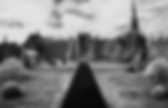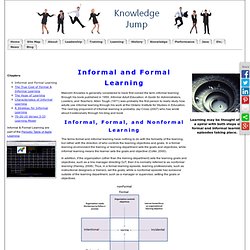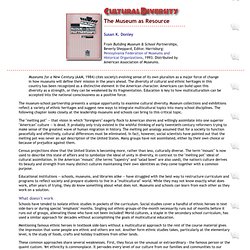

Making Personal Meaning from a Museum Experience: Undergraduate Students ... - Eunjung Chang. Learning from Museums: Visitor Experiences and the Making of Meaning - John Howard Falk, Lynn Diane Dierking. Arizona.openrepository.com/arizona/bitstream/10150/106394/1/marty_mwmv_part1.pdf. Learning from Museums: Visitor Experiences and the Making of Meaning - John Howard Falk, Lynn Diane Dierking. Sciencecentres.org.uk/events/reports/indicators_learning_1103_gammon.pdf. Epapers.uwsp.edu/thesis/2011/leatherbury.pdf. Eprints.ioe.ac.uk/3400/1/Robins2003Creative1.pdf. Formal and Informal Learning. Malcolm Knowles is generally considered to have first coined the term informal learning through his book published in 1950, Informal Adult Education: A Guide for Administrators, Leaders, and Teachers.

Allen Tough (1971) was probably the first person to really study how adults use informal learning through his work at the Ontario Institute for Studies in Education. The next big proponent of informal learning is probably Jay Cross (2007) who has wrote about it extensively through his blog and book Informal, Formal, and Nonformal Learning The terms formal and informal learning have nothing to do with the formality of the learning, but rather with the direction of who controls the learning objectives and goals.
In a formal learning environment the training or learning department sets the goals and objectives, while informal learning means the learner sets the goals and objective (Cofer, 2000). The formal and informal learning chart may also may also be graphed as: Next Steps Chapters: References. Munin.uit.no/bitstream/handle/10037/3403/thesis.pdf?sequence=2. Hmi.ewi.utwente.nl/verslagen/afstudeer/PerloyBertFinalThesis.pdf. Epress.lib.uts.edu.au/dspace/bitstream/handle/2100/254/02Chapter1to5.pdf?sequence=2.
Repositories.lib.utexas.edu/bitstream/handle/2152/ETD-UT-2011-05-3186/SEVERIN-THESIS.pdf?sequence=1. Hum.ku.dk/kalender/2012/maj/museumsdidaktik/resume/Abstract.pdf/ Library.usask.ca/theses/available/etd-10212004-002539/unrestricted/NQ63847.pdf. Learning from Museums: Visitor Experiences and the Making of Meaning - John Howard Falk, Lynn Diane Dierking. Cooperative Learning. Is a successful teaching strategy in which small teams, each with students of different levels of ability, use a variety of learning activities to improve their understanding of a subject. Each member of a team is responsible not only for learning what is taught but also for helping teammates learn, thus creating an atmosphere of achievement.
Students work through the assignment until all group members successfully understand and complete it. Cooperative efforts result in participants striving for mutual benefit so that all group members: gain from each other's efforts. (Your success benefits me and my success benefits you.) recognize that all group members share a common fate. Know that one's performance is mutually caused by oneself and one's team members. Feel proud and jointly celebrate when a group member is recognized for achievement. Research has shown that cooperative learning techniques: promote student learning and academic achievement increase student retention {*style:<b>3. The Engaging Museum Developing Museums for Visitor Involvement - Graham Black. Preparing for Your Visit to the Museum. Preparing for Your Visit.
Cultural Diversity: The Museum as Resource. Museums for a New Century (AAM, 1984) cites society's evolving sense of its own pluralism as a major force of change in how museums will define their mission in the years ahead.

The diversity of cultural and ethnic heritages in this country has been recognized as a distinctive element in the American character. Americans can build upon this diversity as a strength, or they can be weakened by its fragmentation. Education is key to how multiculturalism can be accepted into the national consciousness as a positive force. The museum-school partnership presents a unique opportunity to examine cultural diversity. Museum collections and exhibitions reflect a variety of ethnic heritages and suggest new ways to integrate multicultural topics into many school disciplines. The "melting pot" -- that vision in which "foreigners" eagerly flock to American shores and willingly assimilate into one superior "American" culture -- is dead.
What doesn't work What may work.
Irish MusEd. British MusEd.